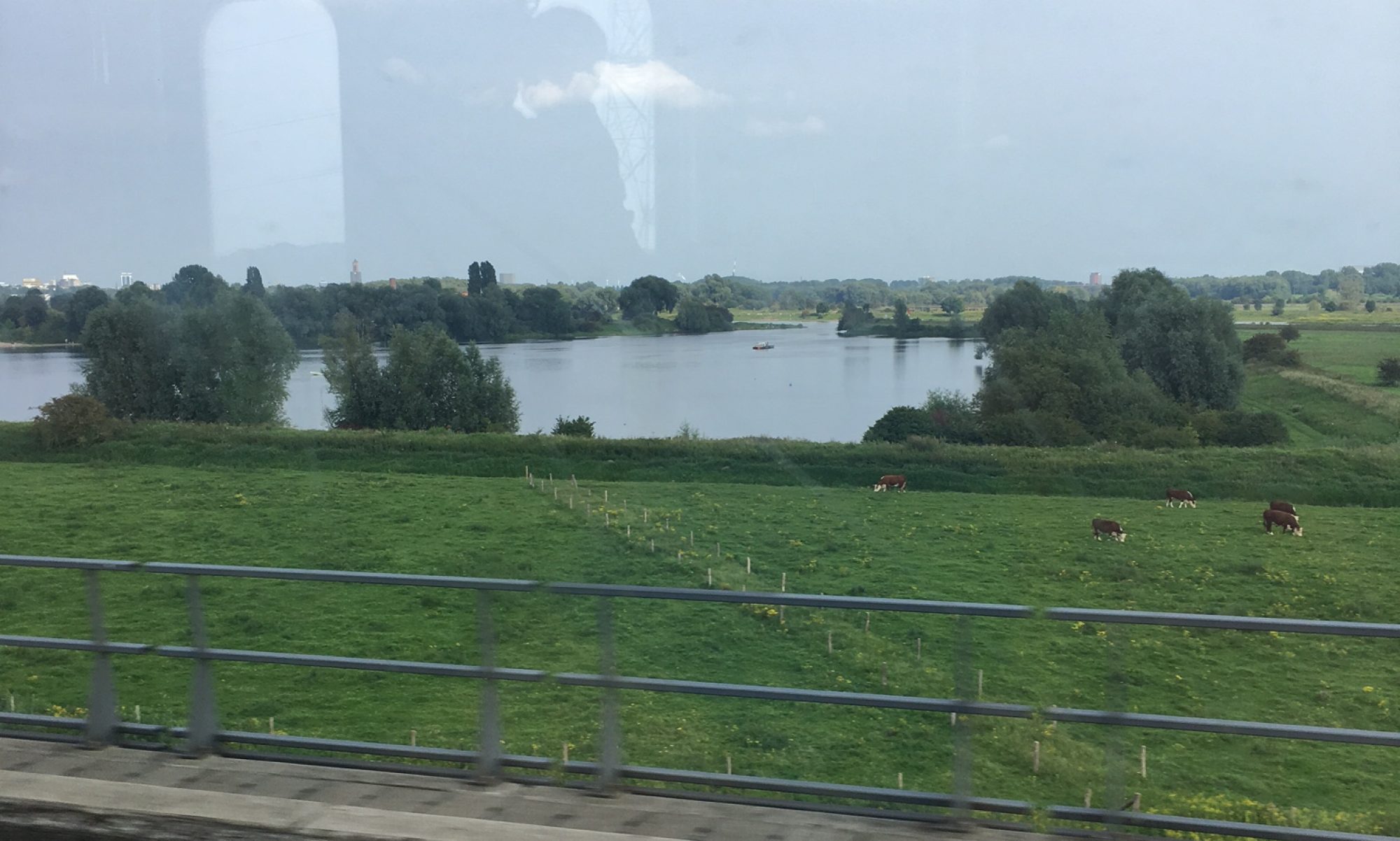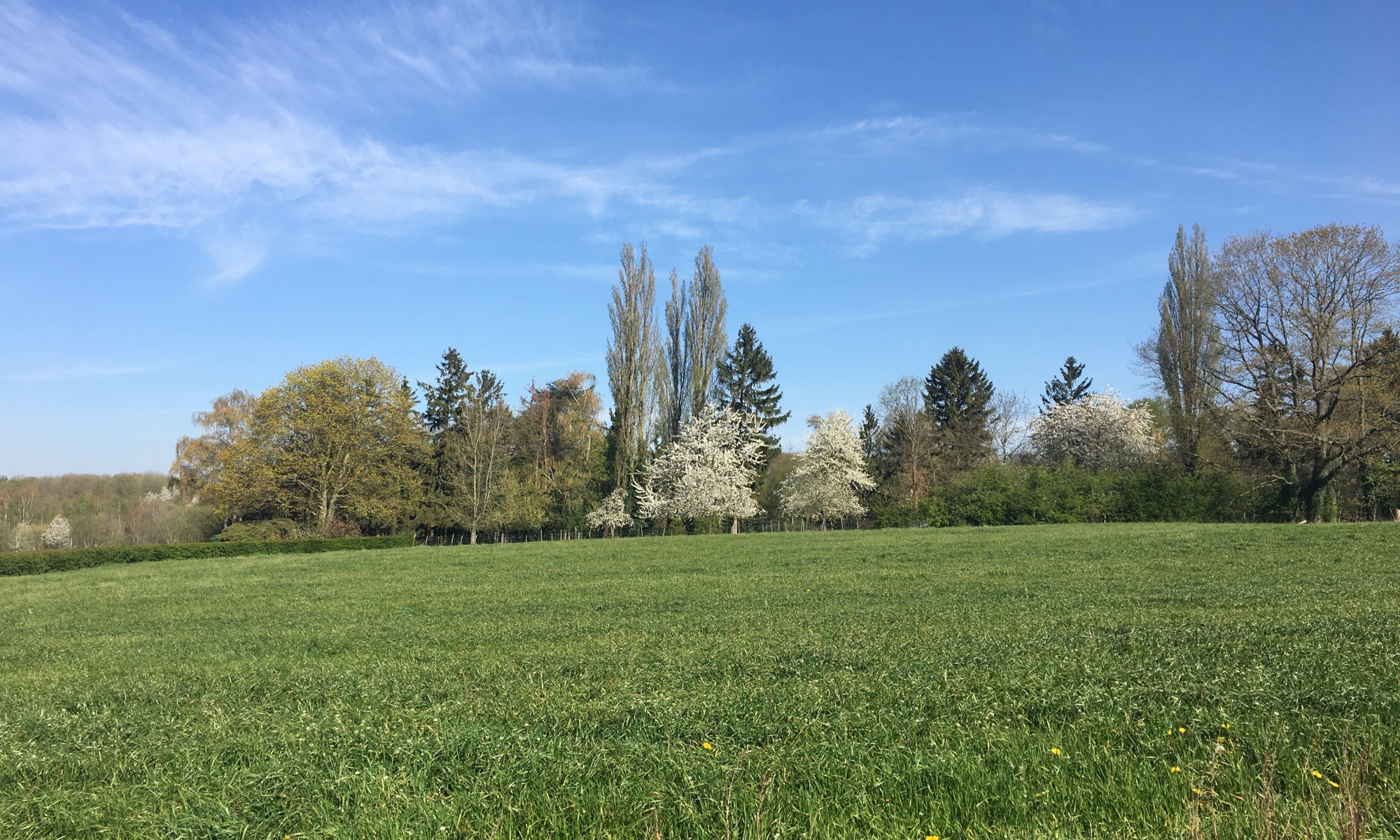Here, we are doing what much of the world is doing — sacking out, settling in for the long haul, sussing out the new normal. I’m trying to take each week as if it is part of the way of the future, knowing that we might be in this phase for this for a long time, possibly multiple rounds of social distancing. In other words, each week is not just a patch to make it to the next week, but the new way itself.
There’s a lot of emotional terrain to be explored in living abroad during a pandemic. There’s the relationship with one’s host country — which has mostly manifested for me as gratitude to the Netherlands’ willingness to be top-down about protecting people, cancelling schools, closing restaurants, saying “this is a priority and it’s not going to be easy, but we need to save lives.” The prime minister addressed the country for the first time in 40 years. Ultimately, NL is taking this seriously, though in its very Dutch way, there is also the general sense that people’s immune systems will ultimately win out, that we want a herd immunity approach, just little by little rather than as an all-at-once assault. Unlike all the countries around us, the borders are not closed. Public transport is running. Multiple people at once can go into a grocery store, rather than the one-by-one approach that, for example, Germany is pursuing.
I’m grateful too for the healthcare system, which if you have not lived with either the American healthcare system or that of a developing country, you might not be able to deeply appreciate. Never here have I worried about general access to care (although any overwhelmed healthcare system, even a well-provisioned one, will buckle under pandemic conditions). Never here have we worried that we’d be de-prioritized behind someone who can pay, or that losing our jobs would mean losing our healthcare, or that crushing medical debt would drag our family down for life or even generations.
Beyond the relatively minor adjustments required of us as a family — figuring out how to all be home together full-time, structuring a new schedule, trying to get both kids’ disparate needs met, trying to make sure each adult gets enough work time, navigating how to get groceries and keep the kids exercised and manage without direct social interaction — there’s one thing that I am really struggling with: encountering the people in my life who seem unable or unwilling to engage with the complexity of the Coronacrisis, as it’s called here.
There are the terrified Americans that I work with every day (people who I love and deeply relate to in most ways). I understand why they’re terrified — see reasons above, plus a profound lack of leadership from the US federal government. The level of terror seems to be as contagious as Covid itself. I’ve had a bad cough this week but no fever, and multiple friends, clients and colleagues have said anxiously, “We’re worried about you. What are you going to do?? How will you handle it? When will you get tested?” I’m both appreciative of the level of their concern and also a little baffled. We’re all going to get this, right? So if what I have now is Coronavirus or not, does it really matter (at least, until the point that it gets serious)? Which also isn’t to say that I take it lightly. But somehow — perhaps because I’m physically away from my cultural context? — I can refuse to be colonized by the fear and worry. We’ll deal with it if it happens. I’m concerned for my elderly family and concerned for vulnerable people, and I’m trusting our immune systems, our resilience, and our ability to cope (until the signs say otherwise).
By contrast, I have a beloved Dutch friend who believes that isolation measures are a worse cruelty than the virus itself. I can see where she is coming from: Her father recently passed away (prior to the Coronacrisis), and were he still alive, she’d be unable to take him medicine, keep him company, care for him and also for her 3 children who are still at home. But she is unwilling to take this seriously, sending me article after article about dissenting scientists who think we’re overreacting to the pandemic, making what seem to be conservative pro-economy arguments, trying to scare people that the pandemic is really just grounds for authoritarianism to take root. I am having a hard time engaging her in conversation about her beliefs. Really? I think. You want to hold onto your cultural model (that our bodies must get and fight this virus to avoid disruption to the social order) at all costs? If not this toll, what toll would be enough to shake you out of this fantasy that things should just go on as normal? Are you not paying attention to the tens of thousands who are dying? Does it just not matter? I truly love this friend, who in most ways I consider kindred: our general values, beliefs, and approach to parenting and family life are similar. She raised kids in the US and UK for years before returning to NL, so we even share many aspects of our cultural models. But this? Why dig in on what seems to me to be the best of this country: a sense that when it matters for the health and security of the population, you can be top-down in order to create (and support) a great society? Why push back against that?
Other extreme polarities that can’t tolerate each other also feel like anathema to me.
People who are struggling with being home and a slower pace: There are really important and valid reasons for this. Home is not a safe or good place for many people. But for those for whom it is: Can they also not engage the gift of this moment, alongside the tragedy?
Likewise there are people in my life who are all-on-board with the profound transformation that is possible coming out of a profound disruption like this one. I’m hopeful too, deeply so. But I have to draw a line at the blithe refusal to acknowledge the tremendous suffering happening: the deaths and sickness, of course, but the real financial instability and precarity that so many people, probably most people, are navigating right now. The need and the terror. Highly privileged people cannot forge ahead in solidarity towards a better way without looking directly at how much suffering this crisis has already delivered, without feeling the ways that any major change is going to involve tremendous pain and fear for a lot of humanity.
And then…and then. There are my liberal Americans who are leaning hard into doing “the right thing,” behaving in the right socially responsible way, not being individualists by doing this as a sacrifice for the sake of the social good. I appreciate this position tremendously right now too: how people are holding each other accountable. And yet…there is a dogma in the must-stay-home-at-all-costs position that also smacks of the performative goodness I often find intolerable in my own demographic/cohort, my peers and friends. This is the upper-middle-class perspective that everyone should be home — not acknowledging that for blue-collar workers, for example, there’s no real way to actually stay home. Or that for some people, ordering groceries online may be completely out of reach. Or…and this I’m watching closely in myself…owning the fact that our privileged ability to stay home is predicated on being able to order all kinds of things (groceries, plastic easter eggs, medicine) that just magically show up at our door, because a whole chain of someones made themselves vulnerable in order to procure, stock, process, package, and deliver the thing that we just couldn’t live without. We got to avoid putting ourselves and our families on the line — while many, many others did not.
Two weeks ago, a client (who is a friend) broke down in a meeting admitting that every day, she watches her immuno-compromised husband go to work in an Amazon warehouse and wonders if this is the day that will start the end of things.
This week, a pregnant client in the NYC area who works in a medical humanitarian organization said (also in a meeting), weeping, “It’s not just that we all know someone here who’s affected, people locally who have died. It’s that in our line of work, we can’t avoid knowing what’s coming — what the future will be like as Covid spreads through refugee camps, as the world’s most vulnerable people are taken down in huge proportions. We can’t unknow what’s coming.”
Everyone is strapped, everyone is afraid, everyone is struggling and anticipating struggle. I find it hard to muster sympathy for Rand Paul or Boris Johnson, finally affected personally by the kind of situation that even their cruel worldview can’t insulate against.
But I also know, deep in my bones, that a lack of compassion helps no one. No one asked for this. Even the best-prepared, most centralized Covid response would have minimized deaths — not stopped them entirely. In the West, most of us don’t even know, can’t even imagine, what it would really be like to lock down at the level that Singapore and South Korea have, or to be fully quarantined and individually tracked in the way of Wuhan. This disruption we’re facing here is profound, and it could be far, far more intense.
To me, this is the awful amazing equalizing poetry of this time: Try as we might, both/and will keep knocking at our door. Try as any of us might to ignore the deaths, to police others into staying home, to imagine that nirvana is coming, to wallow in our own personal annoyance/difficulty, to pick any one aspect of this crisis and take a hardline position — we will be thwarted. We will call it a hoax and then lose someone we love to Covid. We will gnash our teeth about how awful it is to be forced to be with our children full time, and then find ourselves desperate at the idea of sending them back to school environments that are far too rigid in order to allow us to go back to working inhumane hours every week. We will have social media fights with people venturing out who we believe should be staying home, and then continue to endanger others so that we can live in our middle-class consumerist castles, our children safe and well. We will defend a failed president and failed state while much of the world gets the virus under control and the US with all its vast resources does not. And on and on.
This is the great complexity that I believe we’re being asked to engage.
Come on, humans, I keep feeling. Let’s take our heads out of the sand, let’s put our ideologies on a shelf, let’s acknowledge our very real, fragile mortality. Let’s be accountable to each other and to ourselves. It’s not all relative — there is science, there is expertise, there are solutions that are working. And we are also not fully in control. Terrified people do not make great students — whether they’re terrified of Coronavirus or of isolation or of falling into poverty or of authoritarianism.
But we are all being asked to encompass profound complexity and contradiction right now, to be bigger than we were before. To level-up as a species. We may first need to gnash our teeth from our particular personal and cultural positions. And then we need to look around, open ourselves to other people’s realities, expand our sense of things, see who needs help. I’m saying this to you. But really, every day, most of all, I am saying it to myself.

